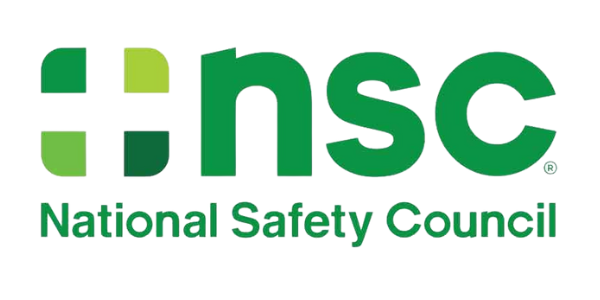Do Hiring Managers Still Read Cover Letters?
Cover letters have long been a staple of the job application process, but in an era dominated by digital resumes and online applications, many job seekers wonder if writing a cover letter is still worth the effort. So, do hiring managers read cover letters, or are they just another outdated formality?
Let’s look into whether cover letters are relevant or not, explore their benefits, and share tips for crafting an effective one that sets you apart in today’s competitive job market.
The Reality of Cover Letter Relevance
When asking if hiring managers still read cover letters, the answer isn’t a straightforward yes or no — it’s a bit more complex. Some sources report that about half of hiring managers consider them to be a valuable part of the application, while others say less or more. Perhaps the best answer is that it depends on the hiring manager.
It’s also important to consider the variability across industries and companies. In fields like communications, public relations, and other roles that emphasize written communication, cover letters are often seen as critical (and can even be deal-breakers if not included).
On the other hand, in tech and some fast-paced sectors, hiring managers may prioritize skills over supplementary documents, like a cover letter. Understanding the expectations within your industry can help guide your decision to invest the time to craft one or not.
There is more agreement that when hiring managers read cover letters, they often skim rather than thoroughly review them. However, done right, a well-crafted one can capture attention and make a strong impact, offering insights that resumes alone cannot provide.
Understanding Why Some Are Overlooked
Although cover letters can be valuable, some hiring managers may overlook them for a few reasons. Time constraints can push hiring managers to prioritize resumes, especially during high-volume hiring periods. The widespread use of Applicant Tracking Systems (ATS) also plays a role here, as these systems screen resumes based on keywords and qualifications, often making cover letters a secondary consideration. Additionally, the sheer volume of applications, particularly in competitive fields, means hiring managers may not have time to review every one that comes across their desk.
However, that doesn’t mean this is wasted effort! Even if your letter doesn’t receive full attention, a compelling opening or standout phrase can still certainly catch a hiring manager’s eye during a quick skim. When you put effort into crafting a targeted cover letter, it can serve as an additional layer of persuasion that tips the scale in your favor, especially if you’re on the cusp of being shortlisted.
Why Writing a Cover Letter Is Still Worth Your Time
Despite the reality that not every hiring manager reads them, cover letters remain an essential tool for job seekers. It sets you apart from other candidates by showing that you go the extra mile. In a sea of applications, this is an opportunity to showcase your personality and soft skills — traits that are often hard to convey through a resume alone.
Cover letters also demonstrate genuine interest in the role, as they reflect your knowledge of the company and its needs, which goes a long way in establishing you as a serious candidate. Plus, they allow you to address unique situations, like employment gaps or career transitions, in a way that resumes cannot.
A well-written cover letter can also highlight your cultural fit within the company, which is increasingly important as companies look for candidates who align with their values and work environment. By illustrating your enthusiasm and aligning your goals with the company's mission, you can create a connection that may not be immediately apparent from your resume alone. This personalized touch can be the difference between getting an interview or being overlooked.
Best Practices for Crafting an Effective Cover Letter
To maximize the impact of your cover letter, it’s important to follow a few best practices, such as:
- Tailor each one to the specific job. Mentioning the company’s name and how your skills specifically align with the job description shows that you’ve done your research.
- Keep it concise. Hiring managers are busy, so focus on relevant experiences without reiterating your entire resume.
- Start strong with a compelling opening statement that grabs attention and highlights key achievements directly relating to the job.
- Maintain a professional tone throughout your cover letter and pay close attention to formatting, ensuring that it is polished and error-free.
- End with a call-to-action that expresses your enthusiasm and invites the hiring manager to connect.
Also, remember to inject a bit of your personality. While maintaining professionalism, a hint of humor, enthusiasm, or a personal touch can make your application memorable and separate you from the crowd. Crafting a narrative around your career journey, rather than just listing qualifications, helps your cover letter really stand out and adds depth to your candidacy.
Avoid These Common Mistakes
Even the best intentions can fall flat if your cover letter includes some common pitfalls. For example, using a generic template can be a red flag for hiring managers who are looking for personalized, thoughtful applications. A better practice is to customize your letter for each job to make a genuine connection with the company and hiring manager.
Try not to simply repeat what’s already on your resume. Instead, use this as an opportunity to add context, provide insights, and share examples that aren’t evident in the resume.
Remember that the focus should be on the company’s needs, and not only on showcasing yourself. A strong cover letter emphasizes how your skills and experience can solve the company’s problems or enhance its success.
Proofreading is another crucial step. Spelling and grammar mistakes can undermine your professionalism and leave a negative impression. Always double-check your letter for errors. And it’s also a good idea to consider asking a friend or mentor to review it before submission.
When It’s Okay to Skip the Cover Letter
While cover letters are generally beneficial, there are times when it’s acceptable to skip them. For example, if an employer explicitly states that one is not required, it might save you time in your job search to simply submit a resume or fill out an application form. But it’s also worth considering that just because the employer is not requiring one, you might have an opportunity to position yourself even better by still submitting a cover letter.
In some instances, online application systems may not offer a field to upload a cover letter, in which case you should incorporate key points that would otherwise be in your letter into the application itself. Always pay close attention to the requirements in the job posting and adjust accordingly!
Skipping the cover letter can be justified if you’re applying for roles where portfolios or specific work samples are more critical than narrative content. In creative industries, for example, showcasing your work might carry more weight.
Depending on the specific circumstances, it’s probably unnecessary to write a cover letter if you are applying for entry-level positions in manufacturing, retail, or warehousing sectors.
Position Yourself as the Right Candidate with a Cover Letter
In today’s competitive job market, a well-crafted cover letter can still be a game-changer, even if they aren’t always read by every hiring manager. It sets you apart, allows your personality to shine, and provides an additional layer of context to your application.
By understanding when and how to use cover letters effectively, you can enhance your job search and make a positive impression on potential employers. So, the next time you apply, don’t see a cover letter as just another task — view it as a valuable opportunity to connect with the people who might shape the next step in your career!





Doing Good in the Community
We are committed to making a difference in the communities where we live and work. Through our Give, Serve, Connect initiative, Workbox provides shared community volunteer experiences.

Select an icon
We sent a confirmation email to your inbox. Follow the instructions there to complete your registration
Quick Links
See More
Quick Links
See More
Workbox Staffing | All Rights Reserved 2022 | Privacy Policy | Terms of Use | Powered with 🤍 by Shazamme








